Program aims to equip a cadre of leaders to expand the community science movement
Facilitating community science isn’t just about managing a project. It’s about creating a space where people with ideas and knowledge from many sources can come together and identify the questions that need to be asked, how to get the answers and how to make a concrete impact in a community. It’s about communities, it’s about science, and above all it’s about getting stuff done.
Thriving Earth Exchange has spent more than five years refining a community science process that works. Now, with the launch of our first cohort of Community Science Fellows, we’re equipping a diverse and remarkable group of people to implement that process in communities across the U.S.
After being matched with a local community, each Fellow will be responsible for shepherding a community science project from idea to impact. This includes getting to know the community, identifying ways science can advance community goals, recruiting partner scientists, managing and supporting the project, and helping to share the team’s story and impact. Fellows serve in a volunteer capacity for a period of 6-18 months.
Our first cohort of Fellows launched this month with a two-day, in-person, hands-on training from Thriving Earth Exchange staff. The training covered the principles of community science and its relationship to issues of diversity, equity and inclusion, and gave participants the chance to practice key skills for designing successful projects, matching communities with scientists and engaging with partners throughout the duration of a project.
Going forward, Fellows will receive ongoing support and mentorship from Thriving Earth staff, a peer group of Fellows and a dedicated community science mentor. The fellows will coordinate projects on issues such as water quality, flooding and climate change in Horry County, SC; Glastonbury, Conn.; Cambridge, Mass.; Youngstown, Ohio; Rockbridge County, Va.; and Boynton Beach, Fla.
A second cohort of Fellows will launch in December 2019. Learn more and apply here.
Meet the Fellows
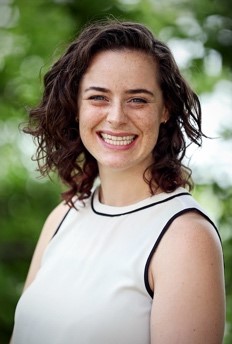
Pamela Braff is a Coastal Climate Extension Specialist at the Virginia Institute of Marine Science and Mid-Atlantic Regional Integrated Sciences and Assessments program. She provides tailored, decision-relevant information on the implications of climate variability and change to coastal communities and stakeholders throughout the Chesapeake Bay region. Her research is motivated by community needs, focusing on the resilience of coastal communities to climate change and sea level rise. Pamela is currently working on several initiatives to advance extreme weather and climate change resilience in the Chesapeake Bay region, including the development of localized, context-specific climate impact summaries and an inventory of existing climate resilience tools and resources. She also provides state agencies and local governments with technical support for coastal resource and flood risk management. Pamela received her B.A. in Marine Science from Boston University, an M.S. in Forest Resources and Environmental Conservation from Virginia Tech, and is a PhD candidate at the Virginia Institute of Marine Science.
“I think doing science with (and for) communities is critical to repairing and adapting to our current environmental challenges and restoring public trust in science.” – Braff
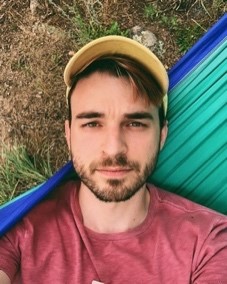
Cameron Dunn (he/him) lives in Brooklyn, NY, and is the Head of Support Operations at Vimeo, leading a team that creates shared resources and more efficient processes for an international group of support agents. Outside of work, he’s a registered wildlife rehabilitator, weekly karaoke participant, and considers himself a creative dabbler (which means he tries lots of things once then never again—RIP embroidery, stained glass, paper-cut portraits..).
“I hope to learn more about facilitation as a tool for productive and efficient work, as well as gain real experience with the practice of community science. I want my matched community to feel empowered with data, and feel like their experience working with a scientist was made easier with my support.” – Dunn

Caitlyn Hall is a PhD student at Arizona State University. Her current research focus is promoting sustainability and natural hazard resilience using microbes to reduce damage from earthquake-induced liquefaction. She works with industry, community, and government leaders to develop best-fit technical and policy solutions to best-address a community’s challenges and values. Her other research focuses include controlled environment agriculture, sustainable use of resources for urban farming, and using biochemical methods to remediate oil-contaminated soil. For fun, Caitlyn spends her time rock climbing and trail running.
“[I was] impressed by how well-run [the training was] and [how much] better prepared I feel about being a community fellow, especially that there is already a culture of sharing with Thriving Earth Exchange and the Fellows for future support.” – Hall
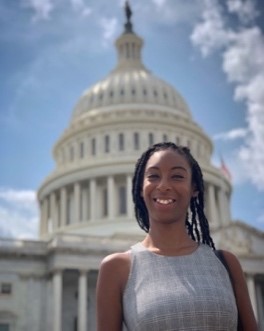
Julia Jeanty is a 2018 graduate from the University of Florida with a dual degree in Environmental Geosciences and Sustainability Studies, as well as certificates in Geospatial Information Analysis and Meteorology and Climatology. Most recently, Julia worked at the American Geosciences Institute as a Geoscience Policy Intern, and then as a Talent Pool Intern at the American Geophysical Union.
“I had a very transformative experience at this workshop. So many ideas were inspired throughout the weekend and I am so excited to begin working with the community. This weekend helped reaffirm my passion for forwarding the concept of community science and including it as a facet of all my future endeavors.” – Jeanty
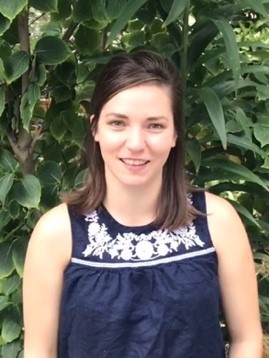
Eva Kostyu works at AGU as a Program Specialist in the Publications department, working with the various stakeholders involved in the peer-review process for AGU journals. Prior to joining AGU, Eva worked as a case manager at a transitional housing program for homeless families in northern Virginia, working with the families to attain self-sufficiency. She has a B.A. in sociology/anthropology from Carleton College and is excited to learn more about community science through the Fellowship. When not at work, Eva enjoys reading, hanging out with her cat and trying to grow an apartment garden.
“I’m so excited to continue to learn about community science and to see it in action! I’m also energized by the potential community science holds to advance equity and drive important community conversations.” – Kostyu
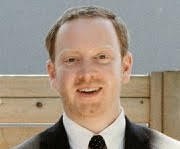
Brendan O’Leary is a PhD candidate in the Civil and Environmental Engineering Department at Wayne State University. His research interests include groundwater in the Great Lakes Basin, volatile organic compound subsurface movement, vapor intrusion, and environmental justice. Brendan received an undergraduate degree from Allegheny College in Pennsylvania where he double majored in Environmental Science and Environmental Geology. He went on to receive his Masters of Science in Geology at WSU under Dr. Larry Lemke, completing his thesis focused on geostatistical modeling and how spatial temporal modeling can help better understand air pollution influences on asthma and perinatal issues. Brendan also worked as a field geologist for the environmental consulting firm, Arcadis, performing vapor intrusion studies, groundwater sampling and modeling, and soil and bedrock drilling. Currently, Brendan is conducting research on urban groundwater with Health Urban Waters and Transformative Research in Urban Sustainability Training (T-RUST) programs at Wayne State University.
“There are few resources in academia to learn about community science. I think this program is a great way to showcase and expand community science. I am very happy AGU sees community science as an area worthy of investment.” – O’Leary
Thanks to our early partners!
Several partners helped us pilot the Fellowship concept over the past year. Big thanks to these early Fellows: Neel Kasmalkar, who coordinates a project in San Diego, Calif.; Isabelle Bully-Omictin, who coordinates a project in Las Terrenas, Dominican Republic; and Madeleine Tshiams, who coordinates a project in Musoshi, Democratic Republic of Congo.

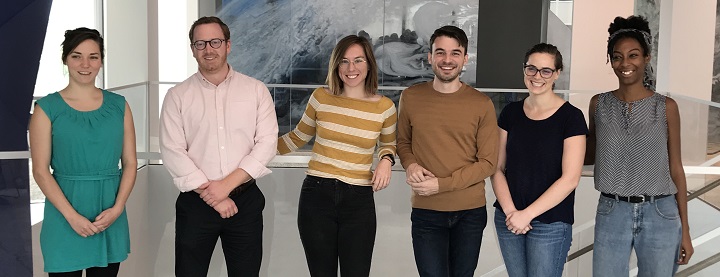
3 Comments
Zack VSep 10, 2019 at 5:14 PM
This is great to see such a diverse group of fellows learning about Community Science! KUDOS to Thriving Earth Exchange!
NatashaSep 10, 2019 at 5:19 PM
Thanks so much, Zack! 🙂
Aida FaroughSep 30, 2019 at 1:25 PM
How Cool! It is great to learn about the fellows!